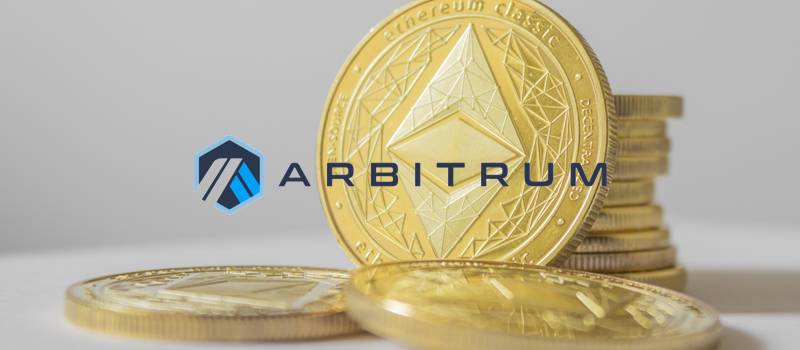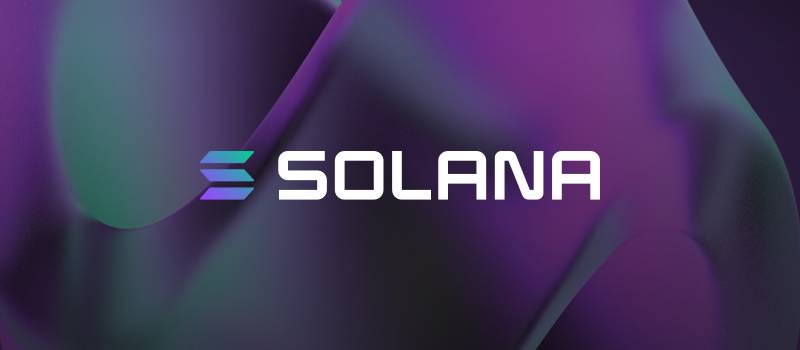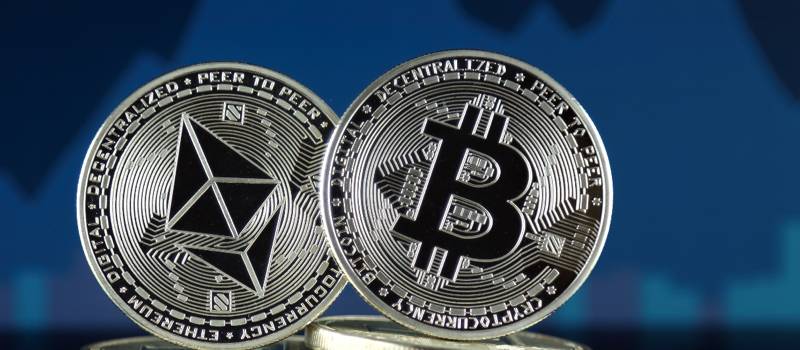Ukraine Adopts New Law To Legalize Bitcoin And Other Cryptocurrencies
Ukraine is the latest to join the growing list of countries that have legalized crypto. Seems as times go by, more governments are acknowledging the staying power of cryptocurrencies such as Bitcoin. El Salvador became the first country to adopt Bitcoin as legal tender earlier in the month. Three weeks ago, Cuba passed a law to recognize and regulate cryptocurrencies, citing “reasons of socio-economic interest,” and now Panama is drafting new cryptocurrency regulations. In the Ukraine earlier last month, there were reports of a new cryptocurrency-related bill that would allow payments in cryptocurrencies. As of then, the bill was being prepared in the parliament for the second reading, according to a local report.
Well, in a nearly unanimous vote, the Parliament in Ukraine passed a law to legalize cryptocurrency on Wednesday of last week, wherein the Ukrainian Parliament adopted the draft law “On Virtual Assets.”
Legally recognizing cryptocurrency in the country for the first time, the law will enter into force after lawmakers approve amendments to the country’s tax code about the taxation of cryptocurrency transactions. This news comes after Ukrainian President Volodymyr Zelensky signed the law On Payment Services, another digital currency-related law. That law officially allowed Ukraine’s central bank to issue a central bank digital currency, in this case, the digital hryvnia.
However, unlike El Salvador’s move to adopt bitcoin as legal tender, Ukraine’s crypto law clearly states that cryptocurrencies do not constitute legal tender. The new law recognizes virtual assets as both secured and unsecured intangible goods. However, cryptocurrencies are not accepted as a legal means of payment, and their exchange for other goods or services will not be allowed. “Ukrainians will also be able to declare their income in virtual assets,” said Anastasia Bratko, of the Ministry of Digital Transformation.
She then added that the law “guarantees judicial protection of the rights to virtual asset owners.”
The new law requires that the term ‘Financial virtual assets’ be issued by registered entities. Crypto market participants will be able to independently determine the value of virtual assets, open bank accounts in order to settle transactions, and seek judicial protection for associated rights. Service providers will be required to abide by the country’s anti-money laundering regulations, including preventing any attempts to finance terrorism through use of their platforms – similar to traditional financial institutions. Two years ago, Ukraine’s Ministry of Digital Transformation was established, and at once became very active in the crypto field. It partnered with Binance to jointly work on new crypto rules. Meantime, the Government’s online portal reported that the Ministry of Digital Transformation was partnering with the crypto exchange Currency.com.
This is a Belarusian service that is reportedly the first regulated exchange in the Commonwealth of Independent States (CIS) region to provide support for cryptocurrencies, fiat, and tokenized assets.
Arbitrum Surpasses $1.5 Billion in TVL Following Rumors of a Possible Token Airdrop
Arbitrum is an L2 scaling solution for Ethereum, and it has reached a new milestone, breaking the $1.5 billion in Total Value Locked (TVL) in less than two weeks since it launched in main net.
It had a big influx of liquidity early last week, with more than $1 billion entering the network, according to info from L2Beat.
Protocols in Ethereum are still adapting their structures to include Arbitrum services, but the layer has experienced sizable support, even though some Ethereum protocols like Compound and Aave still have not yet adopted it.
Arbitrum is a second layer expansion rollup for Ethereum, and the smart contract recorded an influx of more than 1 billion early last week after a rumor started in social media that the protocol might be planning to issue its own token in the coming days. The second layer was launched on main net less than two weeks ago. Most users are heading to the first farming platform in Arbitrum, called Arbinyan, which, of course, is related to the nyan cat meme. Arbinyan alone has 1.48 Billion TVL, which means that almost all of the funds in Arbitrum will be getting the astounding yields the farm is offering, which at this time is about 3,314.70% APY in the Nyan pool.
There might be another reason why these funds have moved to the Arbitrum layer – a rumor about the possible issuance of a native token as an airdrop spread early last week on social platforms like Twitter. Cryptocurrency influencer Cobie made some inquiries and then declared, “Eth l2s (Optimism/Arbitrum) almost definitely gonna do a dydx/uniswap style retrospective token drop right?” However, apart from the rumor, Offchain Labs itself has not declared anything regarding the possible issuance of a native token.
In fact, Arbitrum had to clarify the subject in its official Twitter account, where it stated: “Reminder: there is no Arbitrum token. Anything claiming to be an official Arbitrum token is a scam.” Ethereum users are frequently aware of protocols that lack a native token, waiting for a possible airdrop to happen, and last week, Dydx, a decentralized derivatives exchange, released the airdropped native token for its users, giving $50K to some of its heavy players.
Bitcoin And El Salvador Roundup: How BTC Became Legal Tender, A New BTC Wallet, BitGo, And More
El Salvador saw one of the most important moments in its history last week when the country passed a law which made Bitcoin legal tender. This was also quite important for Bitcoin, as well.
El Salvador became the first government to adopt Bitcoin, and they did so with help from Bitgo, which is behind the technology that is powering the entire effort. El Salvador will be using the official Chivo digital wallet, which will be provided by Bitgo, a crypto custody firm based out of California.
Bitgo will provide the Chivo security platform and the application programming interface.
The South American country had outlined its intentions about adopting BTC in June, when president Nayib Bukele announced the decision on his official Twitter handle. The bill for the Bitcoin law passed after 62 out of 84 Congressmen voted in favor. El Salvador will also be looking at exploring renewable energy use for Bitcoin mining. Mike Belshe, CEO and Co-Founder of BitGo, commented on El Salvador’s decision, stating, “Digital assets look so different from what we’ve seen with other types of money, and so people wonder about how [they] fit in, but this is an opportunity to build financial freedom for the people of El Salvador.”
Many now believe that the Chivo wallet could cost MoneyGram and Western Union about $400 Million in commission made due to remittances. With remittances making up over 23% of El Salvador’s GDP, until now, money service providers such as MoneyGram and Western Union were the preferred method of transferring the remittances. However, the Chivo wallet could change all that.
Whistleblower and privacy activist Edward Snowden weighed in on the possible implications of El Salvador’s Bitcoin law. He believes the implementation of Bitcoin as legal tender will put pressure on competing nations to follow suit.
Eventually, he feels, they will be forced to acquire Bitcoin and Bitcoin’s technical design will incentivize an early adoption.
Over $2.5 Billion USDC Now Circulates on Solana
Jeremy Allaire, co-founder and CEO at Circle, the company behind the dollar-pegged stablecoin Solana, commented that the “USDC on Solana jumped from 1B to 2B in circulation” in just a week. Data from the Solana explorer reveals that the current supply of USDC on the network is just a bit less than $2.5 billion. Solana’s network saw explosive growth this year, and it appears that it’s not just NFTs that are driving it higher – the total amount of USDC that circulates on Solana is now up to $2.5 billion.
Allaire also revealed that the effort to put USDC on Solana came as part of their goal to introduce “multichain USDC, forming partnerships with a number of important chains.” They saw Solana as one of the first to reach out primarily because of “the scale, speed, and cost-efficiency the chain could bring to USDC.”
In any event, these developments on Solana, including the growing number of USDC in circulation on it, have had a high impact on the price of its native token – SOL.
SOL is up over 500% through the past 12 months, and its price recently charted a new all-time high above $200.
Bitcoin continues to chop around $48k as Ether’s exchange outflows spike
Bitcoin seemingly lacks clear direction bias and yet centralized exchanges are seeing record Ether outflow. Bitcoin is in inertia, as lingering macroeconomic risks keep any gains in check. Ether, the native token of Ethereum’s blockchain, is for now seeing little activity in the wake of what many say are bullish record daily outflows from exchanges.
Bitcoin, the largest cryptocurrency by market value, was trading around $48,000 at the end of last week. Its upside momentum ran out of steam when the United States posted unexpectedly strong August retail sales numbers last Thursday, reviving concerns of an early scaling back of the Federal Reserve stimulus. Following a weaker-than-estimated U.S. core inflation number, much of the speculation about a so-called taper had subsided.
Analysts at Standard Chartered expect the Fed to announce the taper this week after the Federal Open Market Committee (FOMC) meets. According to efxnews.com, the fed bank’s analysts noted, “The 22nd September FOMC will likely signal a tapering decision at the next meeting, providing few details. The [interest rate] dots will likely signal one 2022 hike, and two added hikes in both 2023 and 2024.
The risk skew is for more rather than less hikes; the added hawkish lean in not fully priced, in our view.” Market activity in bitcoin futures and options suggests investors are cautiously bullish, however, some observers are worried that Chinese property giant Evergrande’s debt problems may shake financial markets, including cryptocurrencies.
As Glassnode founders Jan Happel and Jann Allemann pointed out, the bullish bias is evident from the mildly positive funding rates, or the cost of holding long positions, in the perpetual futures market. The cautious stance is gleaned from positive one-week and one-month put-call skews, which measure the cost of puts – or bearish bets – relative to calls, which are bullish bets.
The positive values imply that traders are seeking short-term downside protection. Meantime, we are witnessing record Ether exchange outflows – according to the data analytics firm IntoTheBlock, centralized exchanges registered an outflow of more than 360,000 ETH, worth $1.2 billion in the middle of last week. That was the largest single-day net outflow in dollar terms on record. Exchange outflows are typically considered bullish because they represent a decline in the number of coins available for sale in the market. Ether rallied by 60% within thirty days after centralized exchanges registered a single-day outflow of $1 billion on April 16.
The crypto community is cheering the latest outflow; however, drawing definite conclusions based upon blockchain metrics is risky because not every outflow represents a withdrawal by investors. It could be an exchange’s internal transfer.
Ether’s exchange balance has been falling for over a year now and had reached a 2 1/2-year low of 15 million at the end of August. Meanwhile data source Glassnode shows the amount held in the ETH2 deposit contract continues to rise, and it is currently over 7 million.
After Targeting BlockFi, State Regulators Now Set Their Eyes On Celsius
The crypto lending platform BlockFi started facing heat earlier this year from state regulators in New Jersey, Texas, and Alabama, and other states have joined the witch hunt since then. Last week, Celsius began facing similar cease and desist demands from all three of the same states. What could this potentially mean for DeFi moving forward?
It’s quickly becoming quite apparent that Celsius is joining the fight along with BlockFi.
Whereas last Friday, Texas officials filed a cease-and-desist order against Celsius, such filing will require Celsius to show the state why it shouldn’t be ordered to stop offering its products to state residents. It will have to defend against accusations that it is offering residents unregistered securities. The Texas hearing is scheduled for February 24. Meantime, both Alabama and New Jersey issued similar actions on the same day. New Jersey ordered the platform to stop offering select products by November 1, and in a similar action, Alabama demanded that the platform show why it shouldn’t be halted from offering products within 28 days. A Celsius representative told Bloomberg that the firm is “disappointed these actions have been filed and wholeheartedly disagree with the allegations being made that Celsius has not complied with the law,” adding that the platform would not be making any immediate changes in services for clients.
The news comes just a couple of short weeks after Coinbase released a blog post regarding an impending lawsuit from the SEC. This suit assumes that Coinbase will be moving forward with its anticipated Lend product, and in response to that, it has since applied for a National Futures Association license. It remains to be seen what might happen between the Lend product and SEC. Meantime, Celsius has quietly become a behemoth in DeFi, and the platform reportedly holds over $24B in “community assets,” making it one of the biggest crypto lenders and interest-account providers. What this means for Celsius customers in the three states taking legal action remains to be seen.
Crypt enthusiasts believe that BlockFi could end up being a case study; however, what has happened so far between BlockFi and regulators thus far has not been enough to establish a precedent. The optimists hope that these actions lead to regulation that establishes good practice and a framework for crypto lending platforms. However, the pessimistic perspective says that more states could join the ranks, and that DeFi could face increased pressure from regulators, especially given the impact it can have on traditional banking institutions.
Throughout a handful of states, thus far only new account registration has been restricted, and customers on BlockFi prior to the regulatory action have seen no impact. Either way, it seems hard to suggest that these individual state regulators have consumer protection at the forefront.
The post Digital Asset Insights #33 appeared first on JP Fund Services.
Tradersdna is a leading digital and social media platform for traders and investors. Tradersdna offers premiere resources for trading and investing education, digital resources for personal finance, market analysis and free trading guides. More about TradersDNA Features: What Does It Take to Become an Aggressive Trader? | Everything You Need to Know About White Label Trading Software | Advantages of Automated Forex Trading














































